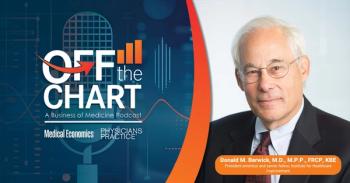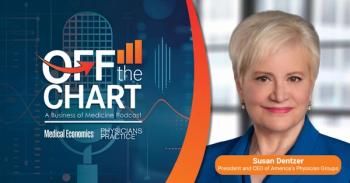
Obamacare's 'Death Spiral' and its Effect on Physicians
Odds may still favor the Affordable Care Act, but not in its present form. Democrats may have no choice but to cross the aisle to fix fatal flaws.
The Physician's Healthcare Policy Group held a meeting in the U.S. Capitol Building on Friday, November 15, and was attended between votes by a dozen or so Congressmen. I am the lone nonphysician member. We all had a lot to add, and much, much more to learn.
For me, the perspective gained from within the halls of power revealed a chilling truth.
Obamacare, despite its justifiably popular positives, is fatally, and likely terminally, flawed.
Its undoing will not be defunding, because it can't be defunded, only repealed. That won't happen unless there is a huge electoral backlash creating a veto-proof house and senate. Not likely even if this were to come to pass.
The law's real Achilles Heel is three factors the federal government doesn't have the constitutional power or legal authority to regulate:
1. It cannot force physicians and other providers to participate, and, they will not if fees are so low that they will lose money. The federal government's only hand to play is to deny participation in Medicare and Medicaid, which physicians and other providers will be forced to accommodate to stay in business. They will do the same with exchanges, which must slash reimbursements to meet pricing limits and the ten "essential benefits." The same goes for any other insurance product. Having insurance is worthless if no one accepts it;
2. It cannot force people to participate by buying insurance any more than it can force people to buy auto insurance if they don't drive. It can, however, tax them, and does because it will collapse under its own weight unless a large majority of young, healthy people buy insurance. With very limited collection powers given to the IRS, prospects are dim, and it won't happen unless tax penalties are higher than the cost of insurance and the IRS is unfettered - political suicide for supporters. Anyone opposing those kinds of taxes and IRS powers is a shoo-in; and,
3. It cannot trump states' rights. The U.S. Constitution is crystal clear on limited federal powers. That;s why Gary Cohen, the director of CMS' Center for Consumer Information and Insurance Oversight, sent a November 14, 2013, letter to every state insurance commissioner effectively saying it was OK to break federal law by allowing insurance companies to reinstate cancelled policies.Cohen said that the executive branch would look the other way.
Congress' response to make these policies legal by extending them for a year is equal-opportunity pandering.
It's like this: New building codes are enacted under federal law and millions are not only evicted because their houses do not meet code, their houses are torn down. Millions find that they can't afford a new house that meets code, and the new real estate exchange is broken so they can't even look, so they are now homeless. Congress reacts by saying "never mind, you can move back into your old house - for a year."
The damage is done, and it is impractical if not impossible to undo the damage, and the federal government can't do a thing about it.
So, Congress, including the physician’s caucus, is forced to fixate on insurance reform, polarizing it as democrats dig in to preserve what is good and republicans dig in to eliminate what is bad in an “all or nothing” battle that leaves the public as collateral damage.
How does this affect physicians? You're collateral damage, too, because instead of reducing the number of uninsured, they are increased by 10 million or more when you include families. They are the new insurance homeless.
This scenario is called a "death spiral" inside the beltway of Washington, D.C., and it is an apt description.
Hopefully, our policy group and others, who are proposing viable solutions, can persuade legislators to adopt them. That requires both sides of the aisle in both houses along with the president to set aside political rivalries and do right by the American people.
It can happen if physicians and other healthcare professionals speak up, not with complaints, but with solutions. Physician and professional organizations concentrate your voices, and they are hard to ignore.
Newsletter
Optimize your practice with the Physicians Practice newsletter, offering management pearls, leadership tips, and business strategies tailored for practice administrators and physicians of any specialty.






